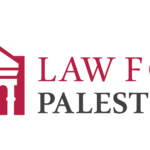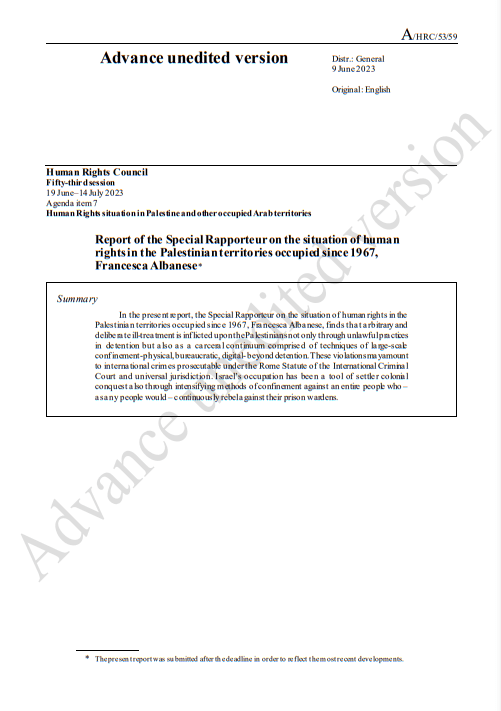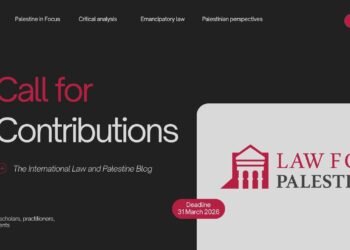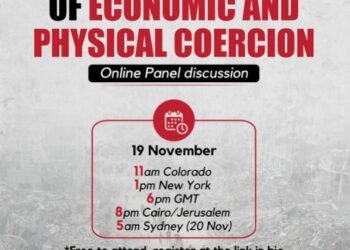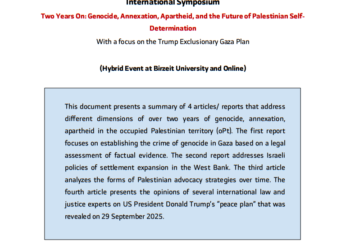Summary of the UN Special Rapporteur’s Report on the Widespread and Systematic Deprivation of Liberty in the Occupied Palestinian Territory
By: Huda Abu Dagga, Ihsan Adel
* To read/download this summary in a pdf document, click here
Background
On July 10th, during the 30th Meeting of the 53rd Regular Session of the UN Human Rights Council, Dr. Francesca Albanese, the UN Special Rapporteur (UNSR) on the situation of human rights in the Palestinian territories occupied since 1967, presented her recent report on the widespread and systematic deprivation of liberty in the occupied Palestinian territory (oPt). This report had been submitted to the Human Rights Council the previous month.
The report highlights that “[d]espite being invited by the State of Palestine”, Dr. Albanese was unable to visit the oPt “due to Israel’s continued refusal to facilitate her entry”. (P.2). Undeterred by this challenge, the UNSR dedicated six months to conducting investigations, including virtual meetings and tours in the oPt, as well as a visit to Jordan as part of her investigative efforts in compiling the report.
The report focuses on Israel’s use of arbitrary deprivation of liberty as a tool of domination and oppression by addressing the structural issues and the scale of the arbitrary deprivation of liberty. It addresses circumstances and processes that lead to the arbitrary deprivation of Palestinian’s liberty. According to Albanese, “The reality captured is of an entire occupied population framed as a security threat, often presumed guilty, and punished with incarceration even when trying to exercise fundamental freedoms.” (P.2). Albanese asserts that the arbitrary and intentional mistreatment endured by Palestinians, coupled with the pervasive “carceral continuum” and extensive forms of confinement encompassing physical, bureaucratic, and digital dimensions, could potentially constitute international crimes that are prosecutable under the Rome Statute of the International Criminal Court and fall within the scope of universal jurisdiction.
Investigating the Arbitrariness of Deprivation of Liberty
The Report starts by explaining the magnitude of the deprivation of liberty since 1967, and how it has been “a central element of Israel’s occupation since its inception” (P.2). Between 1967 and 2006, over 800.000 Palestinians were incarcerated in the oPt. In 2022 alone, about 7,000 Palestinians were arrested by Israel including 882 children. Currently, 5.000 Palestinians are detained by Israel, with 1.014 of the detainees detained without a charge or a trial. The report documents serious abuses against Palestinians in Israeli custody such as confinement in filthy and crowded cells, food and sleep deprivation, medical negligence, severe beating and other forms of ill-treatment. The use of torture, which was legislated in Courts on the ground of necessity as it may deter attacks against Israeli civilians, has also been documented. The report also draws attention to the UN Working Group on Arbitrary Detention, which concluded that widespread and systematic deprivation of liberty may amount to a crime against humanity.
The Report states that the incarceration of Palestinians goes further than their detention particularly, which is “only one element of a larger carceral landscape, extending beyond prison as a paradigm of governance of the occupied territory and confinement of its population”. (P.4). This includes the existence of illegal settlements that exacerbate discrimination and violence against Palestinians.
Establishing the Legal Framework on Deprivation of liberty
The Report covers in detail the various international legal frameworks that address the issue of arbitrary deprivation of liberty. This encompasses treaties and customary international law, including international humanitarian law. Notably, the report here mentions the Third Geneva Convention regarding the protection of prisoners of war, alongside the typically cited Fourth Geneva Convention. International human rights law, which applies even in armed conflicts and extraterritorial situations, and international criminal law are also instrumental in addressing this matter. Collectively, these laws establish that detention is deemed arbitrary when it lacks a legal basis, “violates fundamental guarantees afforded by international law… and it is used discriminatorily.” (P.4) In such instances, such practices may potentially constitute war crimes or crimes against humanity.
Mass Incarceration: Governance and Procedures
The report states that “Israel has denied the applicability of international law in the occupied Palestinian territory since the outset,” (P.6) by maintaining that the oPt is ‘disputed’ and not occupied. This has led to violations of the international law principles that govern occupation. Israel has also claimed that international human rights law does not apply to the oPt which means that Israel is derogating from its international obligations including ensuring access to a fair trial, and upholding the jus cogens prohibition against torture or cruel inhumane and degrading treatment. This is facilitated by Israel’s exercise of control across the oPt through over 2.500 military orders. These military orders control every aspect of the life of Palestinians in the oPt including public order and security, natural resource management, education, transportation, administration of Justice, and planning and zoning. The military orders also criminalize fundamental freedoms of Palestinians, through the two main categories of offenses; security offenses which are concerned with offenses that ‘threaten’ the military’s presence in the oPt and public orders which cover anything from unauthorized demonstrations to traffic disturbances. The report provides examples on how the wide and vague definitions resulted in Palestinians being punished for expressing their opinion or dissent or for peacefully opposing the occupation. Ultimately all these laws/ orders target the right of Palestinian people to self determination.
The report also addresses the abuse Palestinians endure within the detention system and the rights they are deprived of within it. This can be seen from administrative detention which is in itself abusive and breaches their rights to the arrest process and the interrogations where they are subjected to different forms of torture to, the very long pre trial detention that can last to up to 90 days and are renewable, the detention of Palestinians in Israel, and the harsh conditions in jails. The abuse extends to children who also get arrested and traumatized.
The report also highlights the practice of detaining the bodies of deceased Palestinians by Israeli forces, often burying them in what are known as “cemeteries of numbers,” for alleged security reasons. As of May 2023, it was reported that 125 Palestinian bodies, including 13 deceased detainees, were being withheld by Israeli forces.
Multilayered architecture of confinement
The report describes carcerality, which refers to a system that deprives entire populations of their liberty and land, as a crucial aspect of settler-colonialism. Israel’s practices in the occupied Palestinian territory mirror this pattern by subjecting Palestinians to collective confinement. “Over time, Israel has expanded its multifaceted hold over the Palestinians as-a-people through physical, bureaucratic and digital mechanisms.” (P.17) The imprisonment of Palestinians, along with land seizure and forced displacement, contribute to the overall confinement techniques employed by Israel. “This has turned Palestinian life into a carceral continuum, where different levels of captivity co-exist: from the micro-level of individual deprivation of liberty described so far, through mass incarceration, to population entrapment in strictly controlled enclaves”. (P. 17).
The report discusses how the lives of Palestinians have been affected by various forms of captivity at the same time. This goes beyond just individual deprivation of liberty into physical segregation within the fragmented oPt where “Israel has entrapped the Palestinians within a physical architecture that resembles a prison, but on a much larger territorial and societal scale.” (P.17) Here, the Special Rapporteur mentions the illegal blockade of the Gaza Strip as the most well-known example of this “physical entrapment”, along with the fact that 60% of the West Bank is under full Israeli military and civil control with the presence of 270 colonies and military bases, a 700-kilometre-long Wall, and about 64 checkpoints, 76 partial checkpoints, thousands of flying checkpoints, and 17 segregated roads, for a total of 400 kilometers, for Israelis only.
At the same time, and within the boundaries of their confinement, Palestinians are forced to navigate a “maze of Bureaucratic barrier” in the form of permissions, restrictions, requirements disguised under permits and bans issued by Israel. Another layer is added by Israel’s monitoring of Palestinians through CCTV and other devices at check points, public spaces, social gatherings and protests. Palestinians’ private spaces are also often invaded without their knowledge, through online monitoring and tracking of phones and medical records. All these methods of carcerality create a multilayered confinement on Palestinians, strictly controls the population, treats it like a collective security threat, and represses any resistance to the occupation.
Repression and Rights Limitations under Palestinian Self-Rule
Albanese also noted that, since the Oslo Accords, Palestinian self-rule has led to increased repression and limitations on Palestinians’ rights. The Palestinian Authority and de facto authorities in Gaza have carried out arbitrary arrests and detentions. Security coordination between the Palestinian Authority and Israel has created a “revolving door policy” where Palestinians are mistreated by both authorities. Different regions have different arresting authorities. Even students and social media users are targeted for dissent, albeit to a lesser extent than Israeli practices. Albanese also mentioned that custodial conditions in Palestinian prisons have been criticized.
Conclusion
In her conclusions, Madam Francesca Albanese, concluded that generations of Palestinians have endured widespread and systematic deprivation of liberty often for very simple actions as a result of the Israeli occupation. With over 800,000 Palestinians, including children, detained since 1967 based on a range of rules enacted and enforced by the Israeli military. The majority of Criminal convictions of Palestinians over the years concern “legitimate expression of civil and political rights, and the right to resist an illegal foreign occupier”. (P.19). She adds that “by depriving Palestinians of the protections afforded by international law, the occupation reduces them to a ‘de-civilianized’ population, stripped of their status of protected persons and fundamental rights.” (P.19) She also states that by treating Palestinians as a collective, any Palestinian opposing the regime including peaceful protestors will be viewed as a threat and be subject to detention, forcing Palestinians to be in a permanent state of vulnerability.
Albanese also asserts that “mass incarceration reinforces the power imbalance between the Palestinians and Israeli institutions and settlers, facilitating settler-colonial encroachment” (P.19). She explains that Israel uses ‘security’ as a permanent way to maintain control over the occupied territory and further its settler-colonial project. “By shifting from ‘the security of the occupying power’ to ‘the security of the occupation itself’, Israel has disguised ‘security’ as the permanent control over the territory it occupies and tries to annex” (P.19). According to Albanese, this has led to segregation, subjugation, fragmentation, and the dispossession of Palestinian lands and forced displacement of Palestinians.
Albanese also highlights the widespread and systematic arbitrary nature of Israel’s occupation and emphasizes the need to hold it accountable and bring it to an end. She stresses that the unlawfulness of the occupation cannot be remedied or humanized by reforming some of the brutal consequences of the occupation cannot remedy. She urges the international community to recognize this and not contribute or condone Israel’s settler-colonial apartheid, which criminalizes Palestinians for asserting their right to exist as a people and exercising their right to self-determination.
Recommendations
In her recommendations, the Special Rapporteur recommended that Israel’s system of arbitrary deprivation of liberty of Palestinians in the oPt be abolished tout court because of its inherent incompatibility with international law. She also urged third states to “[u]se diplomatic, political and economic measures afforded by the UN Charter, “not recognize as lawful, aid or assist Israel’s occupation given its commission of internationally wrongful acts” and prosecute the commission of international crimes alleged in the report under universal jurisdiction.
She also recommends Israel to release all Palestinian detainees that were detained for acts that are not offensive under international law and bodies of deceased Palestinians, as well as temporarily halt the detention of minors and release all detained children. Albanese also recommends that the Palestinian authorities adhere to international norms, cease arbitrary detention and mistreatment, and establish oversight and accountability measures.
Finally, she asks for an independent and thorough investigation into the possible commission of international crimes that arises from the systemic and arbitrary detention of Palestinians, including through universal jurisdiction, and in particular, the International Criminal Court.
—
* You can access the full report by clicking here, and the press release on it by clicking here
** Read/share a twitter thread on the report by clicking here

